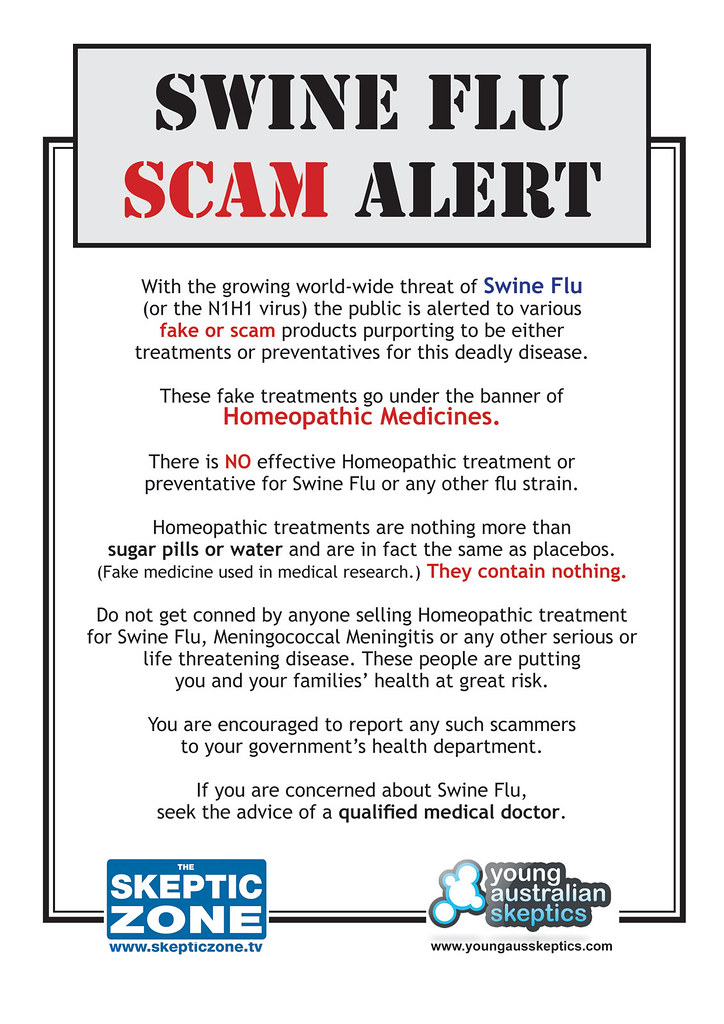Medical Impostors in Ho Chi Minh City: The Scammers Who Prey on Fear
That phone buzzing in your pocket? That familiar ringtone lighting up your screen? These days in Ho Chi Minh City, Vietnam, it might not be a friend or family member calling—it could be the start of an elaborate scam dressed up in a white coat.
A disturbing wave of medical impersonation scams is spreading across the city, preying on people’s trust in doctors, hospitals, and the deep respect Vietnamese culture holds for the medical profession. Behind the calm faces of so-called “doctors” on the other end of the line, behind the official-looking hospital logos splashed across social media pages, lies something darker: criminals ready to steal not just money, but sometimes lives.
In recent weeks, the scams have grown bolder and more sophisticated. One fake story caught fire online claiming that Cho Ray Hospital (HCMC, Vietnam), one of the most prestigious medical centers in Vietnam, was charging people 500,000 VND to register as organ donors. The hospital director moved quickly to shoot it down. Organ donation, he stressed, is always voluntary and entirely free of charge. But by then, fear and confusion had already taken hold. And this was just the beginning.
Cho Ray Hospital has become a favorite target for scammers. Fake job recruitment ads pop up on social media, using the hospital’s name and fake accounts to lure in hopeful job seekers. Some fraudsters pretend to be hospital doctors selling unapproved medicines or miracle supplements online. The cruelest con of all involves impostors calling frantic parents, pretending to be teachers or school staff. In shaky voices, they tell the parents their child has been rushed to Cho Ray Hospital for emergency surgery—and they must transfer money immediately to save the child’s life. Some parents, paralyzed with panic, wired the money without thinking twice. Only later did they realize it was all a lie.
And it’s not just Cho Ray of HCMC, Vietnam. The deception is everywhere.
At JW Cosmetic Hospital, also in HCMC, Vietnam, the director saisd he has spent years battling countless fake Facebook and TikTok accounts using his name and photos. Some pages even claim he runs a clinic in Hanoi—a place he has never set foot professionally—to lure people into booking illegal cosmetic surgeries. He shares that the problem has only grown worse with the rise of AI-generated images and deepfake videos, which make impersonation terrifyingly convincing.
Binh Dan Hospital in HCMC, Vietnam raised the alarm about scammers promoting fake “urology departments” offering cheap surgeries and medical services. The crooks use stolen images of real doctors to fool people into thinking they’re dealing with professionals. Military Hospital 175 (HCMC, Vietnam), another respected name, has faced its own nightmare: its brand and reputation hijacked by rogue “aesthetic institutes” offering dangerous cosmetic procedures in unsafe environments, often hotel rooms or unlicensed clinics.
And the human cost? It’s heartbreaking.
Take the case of a 26-year-old woman who thought she was getting a bargain breast enhancement. The person posing as a medical professional injected her with cheap fillers in a dingy hotel room. Within days, her chest was painfully swollen and infected. By the time she arrived at a real hospital, her life was hanging by a thread. Skilled surgeons managed to save her, but she now faces permanent scarring and emotional trauma she’ll carry forever.
These scams are no longer just about smooth-talking con artists. Technology has supercharged their operations. Criminals use artificial intelligence to create realistic fake profiles. They clone the social media accounts of real doctors and hospitals, sometimes even using AI-generated voices to sound more authentic over the phone. Some scams have reached such a level of sophistication that even tech-savvy people struggle to tell the difference between real and fake.
Authorities and hospitals are sounding the alarm, but fighting these scams is like playing whack-a-mole. As soon as one fake account is shut down, another pops up under a different name. Dr. Pham Thanh Viet of Cho Ray Hospital urges people to stay vigilant. The hospital, he reminds everyone, never endorses unapproved drugs, miracle cures, or online recruitment through unofficial channels. If someone calls you claiming otherwise, it’s a scam. Hang up. Verify.
The Vietnamese Ministry of Public Security is stepping up efforts to track down the criminals behind these schemes, and public awareness campaigns are spreading across social media. Still, the truth is clear: in today’s hyper-connected world, even something as sacred as the image of a trusted doctor can be weaponized for profit.
The scams don’t just steal money. They rob people of their peace of mind, their confidence in the healthcare system, and in some cases, their health or even their lives. Every time someone falls for one of these traps, it chips away at the trust that forms the backbone of doctor-patient relationships.
The best defense? Slow down. Don’t let fear or panic cloud your judgment. Verify any medical call, message, or online post before taking action. Hospitals in Vietnam will never ask for emergency payments over the phone. They don’t sell medications through random Facebook accounts. And real doctors don’t perform surgery in hotel rooms.
As the scams evolve, so must the awareness of every Vietnamese citizen. The next time your phone rings and the voice on the other end sounds urgent, remember: not every white coat is real. And sometimes, the biggest danger isn’t in the hospital—it’s hiding behind the screen.

Always verify unsolicited calls from strangers claiming emergencies or demanding payments, as these could be sophisticated scams exploiting trust for financial gain or worse.
Giả Danh Bác Sĩ, Mạo Danh Bệnh Viện: Những Cuộc Gọi Gieo Rắc Hoang Mang Giữa Lòng TPHCM
Điện thoại rung lên từng hồi báo hiệu một cuộc gọi, một tin nhắn, nhưng phía sau âm thanh quen thuộc ấy đôi khi lại là một cái bẫy tinh vi đang giăng sẵn, sẵn sàng chờ người ta sa chân vào. Câu chuyện về nạn mạo danh bác sĩ, bệnh viện để lừa đảo, trục lợi bất chính đang khiến người dân TP HCM, Việt Nam hoang mang và bức xúc.
Chỉ trong một thời gian ngắn, hàng loạt vụ việc mạo danh bệnh viện, bác sĩ đã bị phanh phui, phơi bày những thủ đoạn ngày càng xảo quyệt của kẻ gian. Nhiều người hoang mang khi nghe thông tin thất thiệt rằng việc đăng ký hiến tạng tại Đơn vị Điều phối ghép các bộ phận cơ thể người của Bệnh viện Chợ Rẫy phải đóng 500.000 đồng mới được cấp thẻ. Thông tin lan truyền với tốc độ chóng mặt trên mạng xã hội, khiến không ít người bối rối.
Giám đốc Bệnh viện Chợ Rẫy, TPHCM, Việt Nam phải lên tiếng khẳng định đây là thông tin hoàn toàn bịa đặt. Ông nói =: “Việc đăng ký hiến tạng là hoàn toàn tự nguyện và miễn phí, không ai bị thu bất kỳ khoản phí nào.” Nhưng đây không phải là lần đầu Bệnh viện Chợ Rẫy trở thành nạn nhân của những chiêu trò lừa đảo tinh vi như vậy.
Bệnh viện này đã từng phải đối mặt với nhiều hình thức mạo danh khác nhau. Từ việc kẻ gian lập fanpage giả mạo mang tên “Đa khoa Chợ Rẫy” để tuyển dụng vị trí “Trưởng phòng điều dưỡng”, đến việc lợi dụng hình ảnh bác sĩ để quảng cáo thuốc, thực phẩm chức năng không rõ nguồn gốc.
Đặc biệt, một chiêu trò nhẫn tâm đã khiến không ít gia đình rơi vào cảnh khốn đốn. Kẻ gian giả làm giáo viên, nhân viên trường học, gọi điện cho phụ huynh thông báo rằng con họ bị tai nạn, đang cấp cứu tại Bệnh viện Chợ Rẫy, và yêu cầu chuyển gấp tiền viện phí. Nhiều bậc cha mẹ vì quá lo lắng, không kịp xác minh đã chuyển tiền mà không biết mình đã bị lừa. Mỗi giọt nước mắt của những bậc phụ huynh là một nỗi đau nhói lòng mà xã hội không thể làm ngơ.
Theo lãnh đạo Bệnh viện Chợ Rẫy, các đối tượng lừa đảo ngày càng chuyên nghiệp. Chúng lập hàng loạt fanpage giả mạo bệnh viện nổi tiếng, ăn cắp hình ảnh bác sĩ thật, thậm chí dàn dựng cả video clip để bán thuốc, quảng cáo thực phẩm chức năng với lời lẽ hoa mỹ, đánh trúng tâm lý lo lắng về sức khỏe của người dân.
Trưởng Phòng Kế hoạch Tổng hợp của bệnh viện Chợ Rẫy nói: “Bệnh viện Chợ Rẫy tuyệt đối không bao giờ chỉ định bệnh nhân sử dụng những loại thực phẩm chức năng chưa được cấp phép lưu hành. Nếu có ai mạo danh bác sĩ bệnh viện để bán thuốc hay tư vấn, người dân hãy lập tức cảnh giác.”
Câu chuyện mạo danh không chỉ dừng lại ở Bệnh viện Chợ Rẫy. Bệnh viện Thẩm mỹ JW ở TPHCM, Việt Nam cũng là nạn nhân của nạn giả mạo trắng trợn. Giám đốc bệnh viện này chia sẻ rằng trên mạng xã hội tràn lan những tài khoản Facebook mạo danh ông, sao chép hình ảnh, thậm chí giả lập cả tên gọi như “BS Tú Dung – Hà Nội” để lừa đảo, đặt lịch phẫu thuật thẩm mỹ. Điều đáng nói là nhiều nạn nhân đã nhẹ dạ tin theo, để rồi tiền mất tật mang, thậm chí rơi vào những ca biến chứng nặng nề.
Không kém phần nhức nhối là tình trạng giả mạo Bệnh viện Bình Dân cũng ở TPHCM, Việt Nam để lừa đảo điều trị nam khoa. Các trang mạng xã hội dựng lên những phòng khám ảo với cái tên nghe rất “chuyên nghiệp” như “Phòng khám Nam khoa Bệnh viện Bình Dân” và quảng cáo những dịch vụ cắt bao quy đầu giá rẻ kèm hình ảnh bác sĩ bị cắt ghép một cách thô thiển. Bệnh viện Bình Dân đã nhiều lần phát đi thông báo cảnh báo người dân và kêu gọi báo cáo những trang mạng này để ngăn chặn kịp thời.
Thậm chí ngay cả những bệnh viện quân đội với uy tín cao như Bệnh viện Quân y 175 (TPHCM, Việt Nam) cũng không tránh khỏi bị lợi dụng hình ảnh. Nhiều trang mạng, phòng khám tư, thẩm mỹ viện đã giả mạo tên tuổi bệnh viện, dùng logo, hình ảnh bác sĩ để chiếm lòng tin người dân. Nhưng đằng sau vẻ ngoài tưởng chừng như chuyên nghiệp ấy là những dịch vụ y tế kém chất lượng, có thể gây hại nghiêm trọng đến sức khỏe và tính mạng.
Hậu quả nhãn tiền của những vụ việc này là không ít người đã phải trả giá bằng chính sức khỏe và sự an toàn của mình. Một trường hợp đau lòng là một cô gái trẻ 26 tuổi vì ham rẻ đã tìm đến một “nhân viên” quảng cáo dịch vụ tiêm filler làm đẹp ngực qua Facebook. Cuộc hẹn diễn ra trong một khách sạn, với chi phí vài chục triệu đồng, rẻ hơn nhiều so với các cơ sở y tế chính thống. Nhưng chỉ sau vài giờ, cô gái rơi vào trạng thái nguy kịch, ngực sưng to, đau đớn tột độ. Các bác sĩ phải nỗ lực cấp cứu, nạo áp xe để giữ lại mạng sống.
Những câu chuyện nói trên không còn là cá biệt. Chúng là hồi chuông cảnh tỉnh cho một thực tế rằng khi mạng xã hội trở thành một phần không thể thiếu trong đời sống, thì cũng là lúc con người dễ trở thành con mồi cho những kẻ vô lương tâm.



